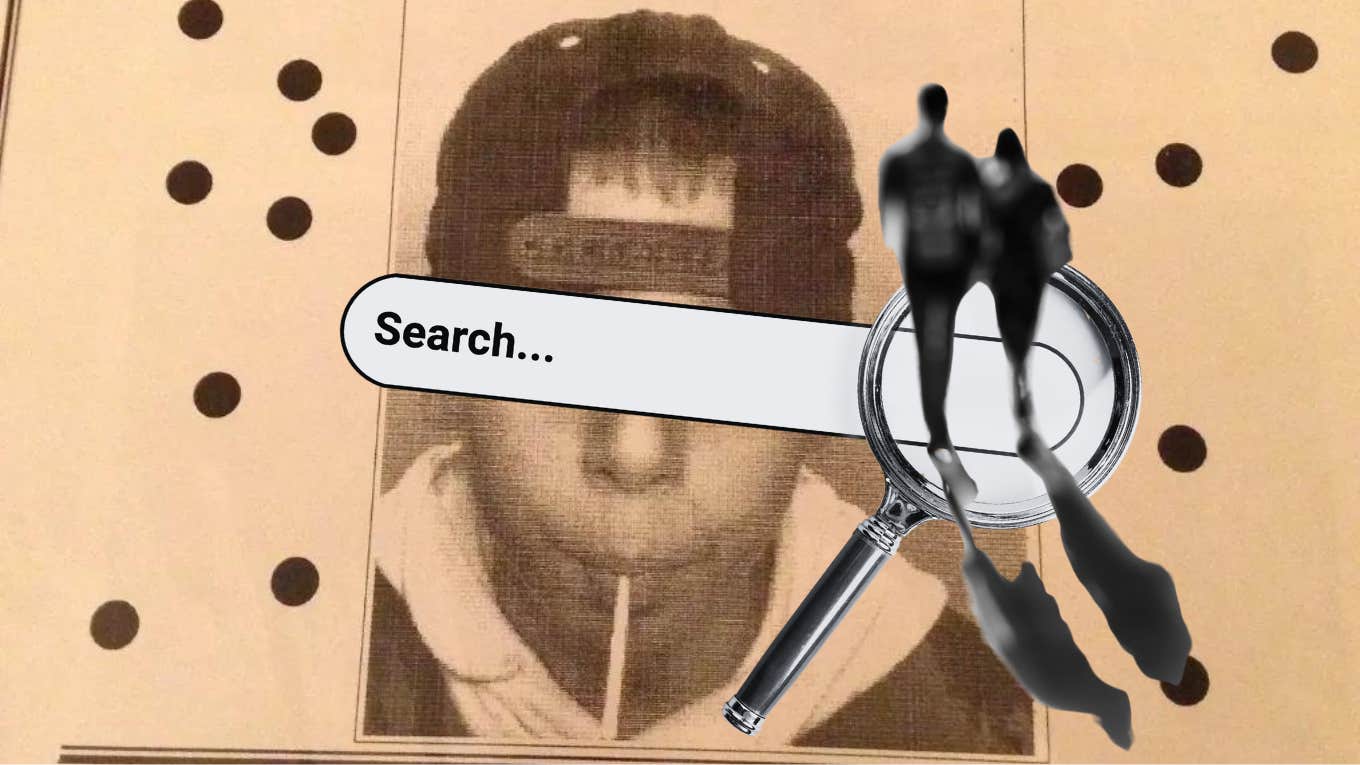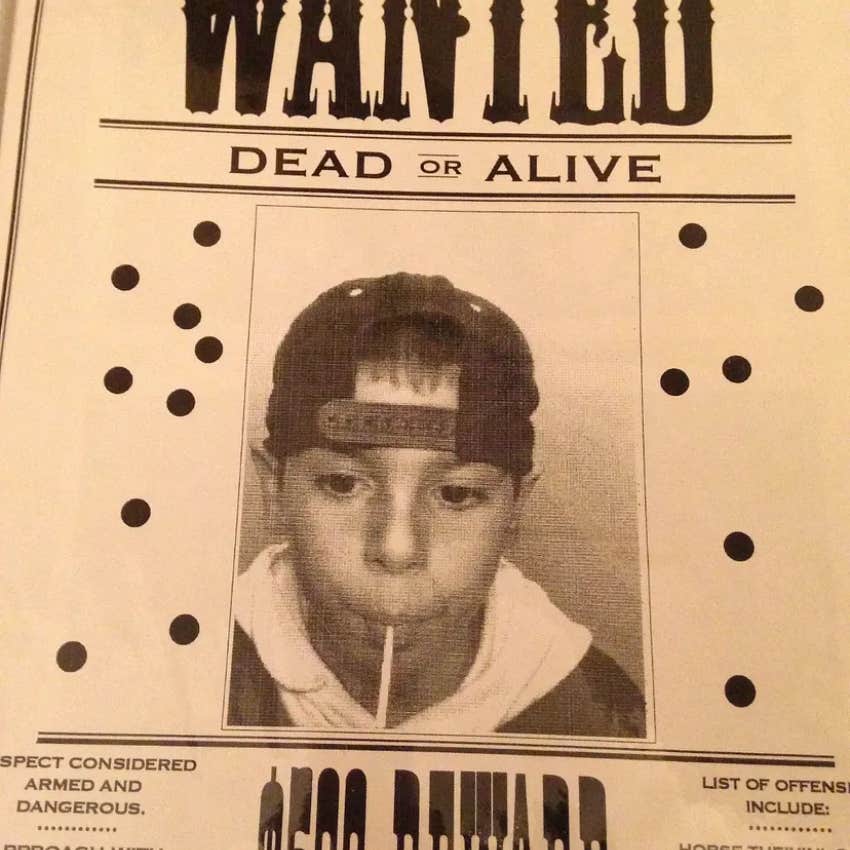My Half-Hearted Search For My Birth Parents
On curiosity, risk aversion, and nature vs. nurture, among other things.
 Courtesy Of Author, PeskyMonkey, Yauhen Akulich | Canva
Courtesy Of Author, PeskyMonkey, Yauhen Akulich | Canva “I’m just curious,” I said on a Google Hangout a few weeks ago, “and I don’t know if that’s a good enough reason?”
The calendar event read “We’re adopted lol.” I’d set it up after a mutual friend connected us (“You’re both adopted!”) so it was sort of like a blind date, but a friend date, one where the icebreaker is the fact that neither of us has met our biological parents.
For context: I rarely meet other adopted people. Two percent of Americans are adopted and we look just like everyone else. We’re experts at pretending to belong (that’s rule #1 in the Adoptee Handbook) so you can’t see us and we can’t see each other.
The first adopted person I ever knew was my Aunt Fern. Her nose was smaller and rounder than any of the noses around our family’s Rosh Hashanah dinner table, and her hair was a few shades lighter but no one seemed to notice. She was quiet and observant. She laughed at everyone’s jokes.
“Aunt Fern was adopted,” my mom leaned over and whispered to me once. I was six. Fern just sat there eating gefilte fish like it was her birthright.
Last fall, I dated an adopted man. On our first date, we told each other we were adopted and then promptly made out. He worked in advertising. He made Super Bowl ads. He worked hard, and I know this because the first night I slept in his bedroom he stayed up until 2 a.m. casting an ad for Bud Light, watching hundreds of little screen tests on the most arcane file-sharing website I’ve ever seen. When I woke up at 3 a.m. to pee, he was snoring on the couch with a MacBook Pro open on his belly.
What I’m saying is that adopted people don’t talk about being adopted, at least not in my limited experience. We’re perfectly comfortable stating the facts (“I was adopted as an infant; I know nothing about my birth parents”) but beyond that, our minds go blank. Our instinct for social camouflage kicks in. We know how to read a room, how to blend, how to give off that “We’re doing fine!” aura. Nothing to see here; I just don’t know where my face comes from.
It’s taken 35 years for me to clock how bizarre this is.
I was adopted at birth.
It was 1987. My adoption was closed, like most American adoptions in the ’80s, meaning my original birth certificate is sealed in Pennsylvania’s Department of Vital Records (I was born in Philadelphia). An adoption attorney brokered the deal. He gave my new family a few deliberately vague details about my birth mother: She was 22. Single. She’d just graduated college with a degree “in computers.” She had brown hair. She had nothing to say about my birth father and seemed to never want to speak to him again.
Her parents were Greek immigrants. They were devoutly Greek Orthodox, i.e. devoutly anti-abortion and devoutly anti-pregnancy-out-of-wedlock. Her father was the showrunner of my adoption. When I had surgery at one day old for a congenitally blocked intestine, he signed the hospital waiver.
Those are the lines. Here’s how I’ve read between them:
It wasn’t completely her choice, but she went along with it because she was scared. Her dad sat her down and said “We’ll take care of this.” She was ashamed but made to feel grateful. Before my tiny bundle of cells came on the scene, things were going so well! A Bachelor’s degree in computers! She just wanted to live her life. She just wanted to do the right thing, and she wanted to believe that such a thing existed.

Photo: Me aged 13 in a photo booth at the Jersey shore/Harris Sockel
RELATED: Mom Labeled 'Selfish' For Adopting A Baby At 49
My new adopted friend’s name is Beth and her story is similar to mine: a closed adoption in the ’80s.
We’re each in the middle of conducting a years-long cost-benefit analysis re: whether to track down our birth parents. It’s like they’re an alien civilization and we’re the SETI Institute. We’re planning our first words.
“And so if I find her, then… what? Like, what do we talk about? What do I say? ‘Hi, uh, I’m your daughter?’”
“I think I would immediately ask her who my dad is if that’s not too confrontational.”
“Do you ever feel like your curiosity has died down? Like you haven’t known the answer for so long you stop caring?”
“Sometimes. I mean, I’ll feel fine for months, and then, in the middle of doing laundry, I’ll just have this strange realization that I could have lived a completely different life.”
When I think about potential benefits, I imagine finally being able to answer the “Do any diseases run in your family?” question on medical intake forms. I fantasize about staring at myself in the mirror and seeing someone else in the curve of my eyes and the cleft in my chin. I’m standing in a room full of people whose eyes and chins vaguely look like mine, and everyone gets my jokes on an intuitive, unspoken level. A half-sibling and I are getting hammered on ouzo. We’re stuffing our faces with spanakopita. We’re laughing at a generation’s worth of inside jokes. Family stuff. You wouldn’t understand.
And the costs? The inevitable disappointment when my magical-realistic expectations don’t come close to reality. When the ouzo and spanakopita fail to materialize and my half-siblings don’t share my teeth and irises. Time, money, and distraction — ending up like one of those Reddit posters who’ve become entangled in family dramas they never asked for, erasing the apocryphal origin story I’ve spent 35 years writing and rewriting in my head; risking being ghosted by my blood relatives for the second time in my life.
“Have you thought about hiring a private investigator?” Beth asked. And then we laughed because, no, neither of us is hiring a P.I. Do you know how expensive a P.I. is? How much money does adoption think we have?
I might not need to dig too deep anyway, because I have a name. When I was 25, my mom drove to my city, bought me brunch, and gave me a letter she claimed to have just discovered in our basement. It’s a note dated August 11, 1988, and printed on the adoption attorney’s letterhead. The attorney gently asks my parents to pay their remaining balance in attorney’s fees ($13.60) and concludes with the sentence “We wish you much happiness with Harris.”
My birth mother’s name is right there. It’s not a common name.
I found her on Facebook last weekend in under an hour. She’s married with three kids, a new last name, and a beach house in Jersey. She has bangs. She has blond highlights. She has a son named Dominic. Her profile photo is a Yorkshire Terrier. I’m terrified of messaging her.
(Also, it totally might not be her. Her married name is super common and four friends have told me she looks nothing like me.)
RELATED: If You're Considering Adopting A Child, Please Examine Your Intentions First
Last night, I dreamed I met my biological dad in a coffee shop a few blocks from my apartment.
I didn’t look anything like my dad, so I was suspicious the whole time and asked him to take a paternity test in the middle of the coffee shop: a normal request in Dreamland. He explained that he is Uruguayan and my mom is Bangladeshi. Then he walked into my apartment and I didn’t even offer him water. I turned to one of my best friends, who was standing right behind me, and screamed “THAT’S MY DAD!”
“All I want is to walk by a restaurant,” Beth said, “and for someone to point to her through the window. I just want them to say, ‘See that person right there? That’s her.’ I’d look at her and keep walking. That would be enough for me. I don’t need to meet her.”
My fantasy is slightly different but the gist is the same: My birth mother beams into my apartment like Captain Kirk. She stands next to my kitchen table-slash-work-from-home-desk and gives me her complete medical history. She tells me if I was delivered naturally or via C-section. She writes my father’s name on a piece of paper and presses it into my palm.
She tells me how and where they met, what she saw in him, or didn’t see in him, or almost saw in him, and why it’s taken so long for her to beam into my apartment like Captain Kirk. She itemizes every one of my facial features and tells me where it comes from. Without explicitly saying any of these things, she somehow communicates that she is sorry and proud and happy and regretful and has no regrets, all at the same time. And then she leaves. We never speak again.
“I’m not in any rush to find her,” Beth said, and I nodded. “As soon as it’s time, I’ll know.”
When I started writing this, I thought by the end I’d know what to do.
I don’t.
I’m covering up my not-knowing-what-to-do with over 1,500 words at this point, and I realize a lot of those words boil down to fear. I know most adoption reunions aren’t made-for-TV, or even made-for-blogs. I’m scared of messaging a total stranger. I’m scared of getting hurt. I’m scared of derailing my life out of casual curiosity. That’s obvious to me now.
Most of the stories I’ve read about adoptees fall into one of three categories: They’re actively searching, they’ve completed the search, or they’ve chosen to be content not knowing. I’m writing this in the space between those choices. The distracted, ambivalent, half-hearted middle state where I’m just thinking hard about it and doing… not much.
My life is fine. It’s sometimes surprising and wonderful and even categorically Good.
35 years ago, some lawyer in Philadelphia took me out of one story and put me into another for a few thousand dollars plus $13.60. I glided along okay, worked hard at points, and ended up here. I pay my taxes, I do my job, I eat organic yogurt and drink overpriced coffee, and send my mom little Mother’s Day bouquets I never see because I order them over the phone. “Look to your future, not to your past. Never call me again,” another adoptee’s maternal grandmother said when she tried to contact her birth family, and I can’t get that comment out of my head.
Things would be easier if I could simply “look to my future,” but curiosity is an elemental human trait and I want to know where my face comes from. We all want to put ourselves in context, to zoom way out and see ourselves as tiny dots on a map full of other dots. “Every birth mother I’ve spoken to says the same thing: ‘Not a day goes by when I don’t think about what happened,’” explains an adoption psychologist in a popular lecture adoptees quote on Reddit.
If I’m thinking about it — writing about it — my birth mother is, too. My life is her alien civilization. She thought about me this week, she thought about me today, she thought about me in the last 10 minutes. It’s a feeling I’ve been living with for nearly 36 years. I’m curious how life will feel without it.
RELATED: Man Who Refused His Dying Ex’s Request To Adopt Her Son Wonders If He Was Wrong
Harris Sockel is a writer living in New York City. His work has appeared in Apartment Therapy, Hobart, The Rumpus, and elsewhere.
